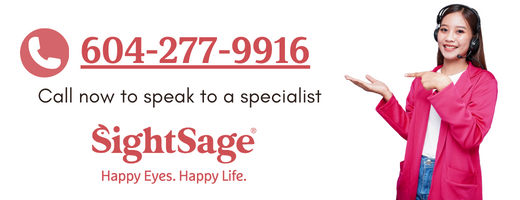New Research Shows Link Between Myopia, Lack of Sleep & Screen Time
Difficulties sleeping? A strong cup of coffee in the morning may help you clear your head and get ready for work, but poor sleep may take its toll on your eye health. A new study sheds light on the link between myopia and lack of sleep.
Lack of sleep may be associated with myopia, a condition with causes difficulties seeing distant objects. The most common eye disorder in the world, myopia is predicted to affect 52% of the global population by 2050.
Insufficient sleep, meanwhile, is considered another public health epidemic, with 35.2% of American adults reporting that they don’t get enough sleep.
How Lack of Sleep and Myopia Are Connected
In a recent study, Australian researchers at Flinders University measured melatonin levels in young adults with myopia as well as in those with normal vision.
The hormone melatonin plays a crucial role in our sleep-wake cycle and our biological clock, the circadian rhythm. The pineal gland in the brain produces it after dark. When there is not enough melatonin in the body, sleep is affected.
Researchers found that people with myopia had lower levels of melatonin and that their circadian rhythms were delayed. These findings indicate that people with myopia are more likely to experience poor sleep. This could translate to difficulties falling asleep and overall reduced sleep quality.
While more research is needed to fully understand the link between myopia and lack of sleep, there is a potential association between the onset of myopia and disruptions in the circadian rhythm.
Lack of proper sleep and disruptions of the circadian rhythm are associated with a host of health problems. The latest findings suggest that not getting enough sleep could contribute to the development of myopia and possibly other vision problems.
Myopia or nearsightedness commonly affects young adults and children, causing problems with seeing objects at a distance. While the condition is easy to correct with eyeglasses, but it may increase the risk for glaucoma, retinal detachment, retinal tear, cataracts, and other diseases that may severely affect vision and cause blindness.
Do Screens Cause Myopia?

Globally, myopia is on the rise. Aside from poor sleep and the genetic causes of myopia, computer screens may contribute to the development of the condition. Some research suggests that there may be an association between the excessive use of screens and the onset of myopia.
Do screens cause nearsightedness directly? More research is needed to determine this, but the increase in the rate of nearsightedness since the advent of personal computers and mobile devices with light-emitting screens indicates this.
The American Academy of Ophthalmology also notes that children who spend more time indoors have a higher risk of developing myopia. A possible explanation for this is that sunlight is essential for healthy eye development. While direct, extended exposure to UV light is bad for the eyes, time in the sun with adequate eye protection is beneficial.
For people with myopia, digital screens and artificial light can compound the problem. Researchers are still investigating the exact cause, but screens are contributing to the problem as they often keep children—and not only children—indoors.
With children and young adults spending more time in front of screens today than ever before, this may explain at least in part the high incidence of the condition among them. According to Common Sense Media, American teenagers spend 9 hours a day in front of screens.
Genetics continues to be regarded as the leading myopia cause, giving rise to an eyeball that is longer than normal or that has a steeper curvature and so causing a refractive error. Myopia often runs in families, with the risk of developing nearsightedness increasing if one or both of your parents have the condition.
While the genetic factors behind myopia are for now beyond your control, sleep and screen time are easier to manage. By getting better quality sleep and reducing your screen time, you may proactively reduce the risk of developing myopia and possibly better manage the condition if you already have it.
At the same time, you can maintain normal vision for years to come while avoiding other common eye health problems, such as dry eye syndrome.
Take the Dry Eye Test
Not getting enough sleep can cause dry eye, a condition that is often more likely to affect people with myopia.
Having dry, scratchy eyes and other symptoms associated with this condition can be an early warning sign that you’re not getting enough sleep and that you’re spending too much time in front of screens.
Your eyes may be telling you that they are starved of sleep or essential nutrients your body needs to maintain healthy vision.
Are you experiencing dry eye symptoms? Find out whether you may have the condition so you can address it before symptoms worsen.
